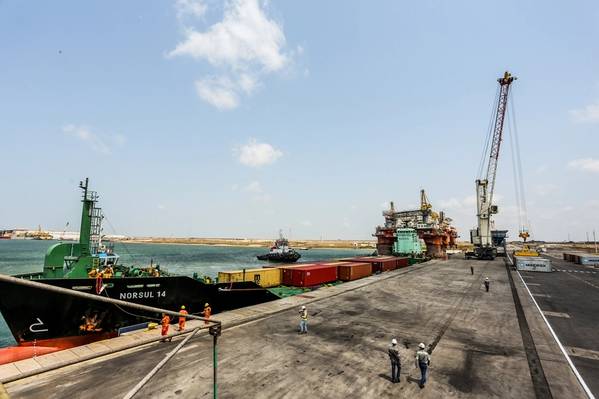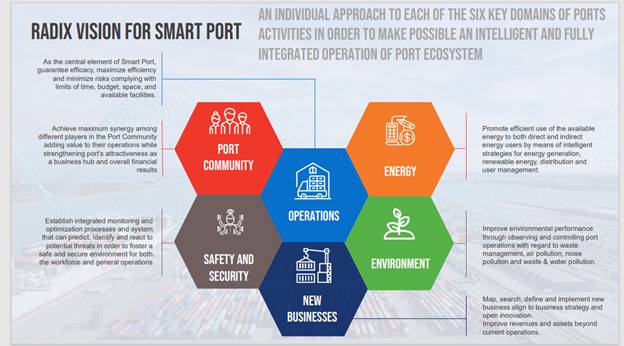
Radix Engineering and Software, in collaboration with HPC Hamburg Port Consulting, the Supply Chain & Logistics Technology Program - University of Houston, and UTC Overseas, Inc., is developing a ‘Smart Port’ Digital Growth Masterplan for the Port of Açu (PdA), the largest private port in Latin America.
The goal is to develop a 5–10-year vision for the technological platform of the Port and its ecosystem, focused on the optimization of operations, attraction of new businesses that are technologically aligned, and the establishment of a technological governance plan and systems architecture.
“Large ports in the world, such as Antwerp, Rotterdam and Hamburg use different and excellent port and maritime traffic management tools, but few operate in the way that Port of Açu operates, integrating these tools in the same environment," said José Firmo, Chairman from the Port of Açu. "There is a worldwide demand for greater integration of port and navigation systems. This plan places Port of Açu on the same level as the main ports in the world.”
PdA expects to generate greater efficiency, reduction in the time of shipments/landing and connection of all clusters and production steps, such as movement statistics, availability, maritime safety data, customer specifics, and engagement with all stakeholders in the ecosystem. The Digital Masterplan will include the proposal to digitize the different stages of the logistical process and attract new business to the productive port.
“The University of Houston, UTC Overseas and HPC Hamburg Port Consulting are nodes in the global value chain," said Margaret Kidd, Program Director, Supply Chain & Logistics Technology, University of Houston. "The opportunity to collaborate with Radix in developing a digital-growth master plan for Port of Açu is ingenuity defined. Global human capital optimizing local and global technical issues."
“Beyond digitization, the ‘port of the future’ plans for new industry cluster needs, looks to collaborative partnerships to drive innovation and growth, applies the value proposition of the ‘triple bottom line’, understands the importance of filling the skills gap to not only prepare the ‘workforce of the future’, but more saliently to attract knowledge intensive industries, such as high-tech,” said Kidd.
Digitalization projects in ports are growing globally, as players in the logistics chain increasingly realize the efficiency gains to be made, and the organizations in this most recent project are well versed in the process.
“Radix had already finished some digitalization projects for other ports, notably the CSN Port at city of Itaguaí, Rio de Janeiro State, and some VALE ports," said Luis Alfredo de Almeida Cruz, Radix Business Development Manager. "We also have ongoing projects with Cargill Brazil Assets. We’ve found that the digitization of the various stages of the production process will allow the analysis of medium and long-term trends, with the aim of increasing the availability and efficiency of the port. This will lead to better decision-making - based on data - reacting more quickly to the market and with a leaner, more reliable and economical cargo movement.”
 Image courtesy Radix
Image courtesy Radix


